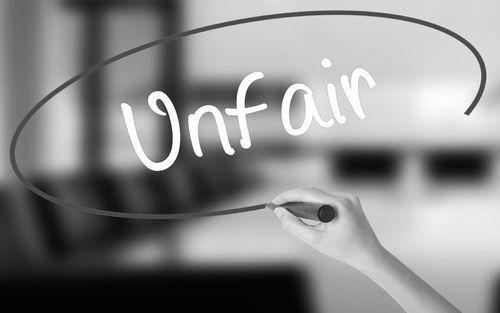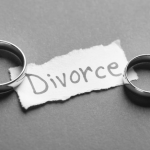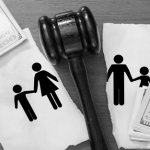Family law attorneys get a lot of phone calls from divorcées regretting the settlement they entered. Perhaps it seemed like a good deal at the time, but he/she wasn’t thinking clearly or was emotionally overwhelmed by the divorce. Or worse, the former spouse pulled a fast one, by hiding bank accounts, purposefully undervaluing assets, or misrepresenting the origin of debts. What can be done? Can the person ask the Court to throw out the Judgment and start over?
Yes. Under certain circumstances, Courts can allow a party to readdress one or multiple provisions of the divorce judgment. To obtain this kind of relief, the challenging party must prove 1) the “procedure” of the deal was unfair (the way in which the parties entered the settlement), and 2) the “substance” of the deal is unfair (a lopsided deal).
A quick clarification: this principle applies to cases where the parties settled their divorce through a stipulation; they made a deal, and the Court entered a judgment based on the terms of that deal. If the parties don’t strike a settlement, but instead go to trial, then this article doesn’t apply.
Procedural Unfairness
The “procedure” of a divorce settlement is the facts and circumstances surrounding the formation of the agreement. It includes how the parties negotiated the deal, exchanged information, interacted with each other, whether attorneys were involved or not, etc. The basic concept here is a process of the settlement – whether the deal was entered into in a fair manner or not.
In making a determination on procedural fairness, a court will consider things like:
- Did the parties make a mistake during the deal (e.g. a pension was valued at $50,000 when it was worth $500,000)?
- Was a party under duress at the time of the deal (e.g. one spouse needed money quickly to pay for urgent medical care, and accepted five percent of the marital estate instead of fifty)?
- Whether one spouse exerted “undue influence” over the other (e.g. an extremely controlling spouse took advantage of the other vulnerable and unsophisticated spouse who fell victim to the pressure and position of the other)?
- Whether one party simply committed fraud by lying, hiding, misrepresenting, or otherwise unfairly and purposefully deceiving the other about the substance of the settlement.
- How long the parties were able to consider the deal before entering it, or whether they were allowed the opportunity to retain an attorney to assist with the settlement.
- Whether either party was under the influence of substances at the time of the deal, and to what extent.
Courts are especially skeptical of settlements in which only one party has an attorney, and the deal is done quickly. These situations can indicate that one party had all the information and bargaining power, while the other was perhaps uninformed and intimidated. This is why some states require, and many law firms utilize, waivers of counsel so that the unrepresented party is forced to acknowledge and discard or ignore the rights available to him/her, and the potential disadvantage to him/her.
Substantive Unfairness
Substantive unfairness concerns the content of the deal: Did each party receive at least a somewhat fair outcome in the divorce? A deal is substantively unfair if it is “blatantly one-sided” or “rankly inequitable.”
If one party has a high paying job, but takes ninety percent of the assets in the divorce, while the other is an unemployed homemaker and takes ninety percent of the debt; the substance of the deal is unfair; it’s blatantly one-sided.
This can be a difficult hurdle to clear; many courts require a large disparity in the division of assets and debts before disturbing a judgment based on parties’ settlement. The reason for this is public policy: courts want to encourage the prompt and peaceful settlement of cases by parties who voluntarily stipulate to the disposition of their marital property. It saves the court from having to conduct a trial on every divorce and prevents the higher amounts of dissatisfaction with, and disobedience of, judgments based on contested proceedings.
Some courts have ruled that to reach the level of substantive unfairness the deal must be so unfair that no rational, undeluded person would accept it. This may seem harsh, but without a high bar, you might imagine the endless lines of post-divorce litigants seeking relief. Hardly anyone exits a divorce thinking he/she got a fair deal. Without a strict policy, no settlement would be safe from future challenges, even if mostly fair. Too much uncertainty on the enforceability of settlements would, again, lead to fewer privately negotiated divorces – which the court wants to strongly encourage.
Conclusion
If you have a question about this article or wish to speak with an experienced attorney about the unfairness of your divorce judgment, or other family law matter, call our Family Law Team at 701-297-2890 or email us below.
The information contained in this article and on this website is for informational purposes only and not for the purpose of providing legal advice. You should contact an attorney to obtain advice with respect to your particular set of facts.










